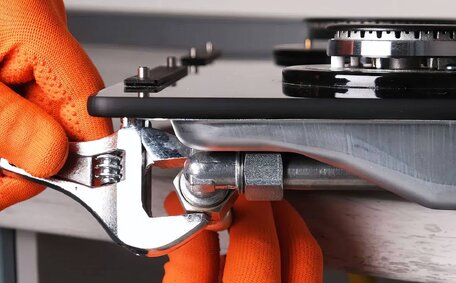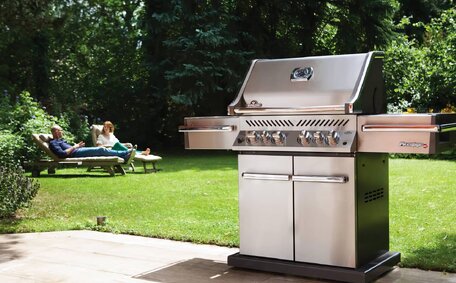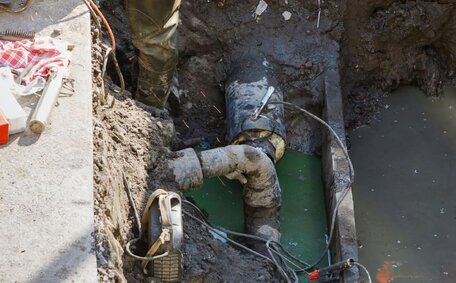
The role of gas fitting in kitchen renovations
When renovating your kitchen, it’s important to engage a licensed gas fitter to safely install, replace or alter any gas appliances and pipes. This ensures
Read MoreHot water systems in Australian homes are crucial for bathing, washing, and hygiene. However, improperly installed or ill-maintained systems pose significant safety risks.
Every state and territory in Australia specifies regulations and compliance stipulations for continuous flow, which includes instantaneous water heaters. Regulations dictate aspects like water temperature, efficiency, prevention of Legionella, and safe operation.
Adhering to regulations for heated water is crucial for preventing injuries from scalding, minimising greenhouse gas emissions, and stopping the spread of dangerous bacteria like Legionella.
This guide will explore the regulations governing various hot water systems in Australia. We will cover safety measures including water temperature limits, tempering valve use, and prevention of Legionella. There are some state-by-state differences in hot water system installation and replacement rules, which we’ll also outline.
Understanding new water system regulations enables homeowners and professionals to ensure safety and efficiency standards are met. Correct installation and maintenance of water heaters, adhering to regulations, ensures their safe, long-term operation.
Regulations mandate that electric hot water not exceed 50°C at the tap to minimize scalding risks and prevent Legionnaires’ disease. If hot water can become too hot or not warm enough, it poses a risk of third-degree burns almost instantly.
Effective temperature control is essential to prevent serious scalds from hot water taps. For safety, every hot water system new installation in Australia must feature an approved temperature control device like a tempering valve or thermostatic mixing valve. These devices automatically blend water hot and cold, making sure the resulting temperature remains safe and does not exceed 50°C as it exits taps.
Tempering valves, often near the water heater, efficiently blend hot and cold water. Both categories of devices are fine-tuned to deliver water with a regulated delivery temperature that remains no higher than 50°C.
Properly installed temperature control devices consistently maintain safe hot water temperatures. These devices protect all household members, especially vulnerable individuals, from accidental scalding.
Hot water scalding risks severe injuries, especially for children and the elderly. Australian regulations cap hot water temperature at 50°C for personal hygiene to prevent scalding.
There are several key ways to prevent scalds in your home:
Prioritize safety in households with vulnerable individuals when installing or maintaining storage tanks. Have your plumber verify compliance with regulations for hot water system installation or replacement. Adhering to standards prevents scalds and provides peace of mind for those caring for children and the elderly.
Tempering valves ensure safe water temperature but must be installed and maintained correctly.
With the installation of a tempering valve suitable for the array of hot water systems out there, a licensed plumber must:
Homeowners should test water temperature monthly with a digital thermometer to ensure safety. Ensure your storage tank’s valve never releases water above the 50°C threshold. Should this be the case, organise for your plumber to tune the tempering valve accordingly.
Annual maintenance is vital for checking wear and function of valves. Tempering valves, with their degradable parts and seals, typically require replacement every 5-10 years.
Upgrading to a unit like a solar heat pump may require modern tempering valves for STC eligibility. Your licenced plumber can ensure new valves suit your system.
Well-fitted tempering valves provide long-term protection against hazardous water temperatures.
There are some key state-specific regulations to be aware of when installing or replacing hot water systems in Australia:
In NSW, all new installations and replacements must comply with the National Construction Code and Plumbing Code of Australia.
This covers areas like energy efficiency ratings, leak control measures, temperature regulation, and the integration of renewable energy solutions. Tempering valves or a tempering system must be fitted.
While aligned with the national Plumbing Code, Victoria has additional regulations from the Victorian Building Authority. Primary stipulations include energy efficiency ratings and a 3-star minimum for residential replacement units.
In Queensland, all plumbing and drainage works need approval from a licenced professional. Installations and system replacements in Queensland do need to comply with AS/NZS 3500 and require a Certificate of Compliance from the plumber to show that regulations have been satisfied.
For detailed guidance, consult state regulators and engage expert professionals such as Cecil Hills Plumbing. Staying current with hot water plumbing knowledge and maintaining strict compliance ensures that your system fulfills all safety, efficiency, and regulatory standards.
To ensure hot water systems continue operating safely and efficiently, Australian regulations mandate regular inspection and maintenance for all hot water systems.
An annual inspection by a licenced plumber should include assessments for:
If your hot water falls short of standards, immediate action from professionals like us can restore compliance. Most common remedies involve tempering valve adjustments, system cleaning, replacing worn parts or upgrades to improve efficiency ratings.
We also recommend a more extensive major service every 5 years in line with manufacturer guidelines. This may involve draining and de-scaling electric or solar hot water systems, anode rod replacement in storage tanks, or testing/replacing components nearing end of service life.
Regular maintenance of your hot water system guarantees continual safety for your household. Minor repairs help maximise system lifespan while identifying any major faults early prevents dangerous failures. With expert help from qualified plumbers like the team at Cecil Hills Plumbing, you can rest assured your system meets the highest compliance standards.
As a homeowner, knowing when to call a professional plumber can prevent injuries, property damage, and other costly problems when dealing with heat pump hot water issues. There are several scenarios where it pays to rely on qualified, licenced experts like Cecil Hills Plumbing rather than trying DIY fixes:
Attempting to install or replace complex electric pump hot water systems without appropriate training and expertise risks non-compliance, hazardous leaks, and voiding warranties. Our licenced plumbers stay informed on the latest regulations and can take action to install your new system with the assurance it meets all safety and efficiency standards.
Strange gurgling noises, banging pipes or leaks behind walls often indicate bigger issues needing thorough diagnosis. We have high-tech leak detection tools, drainage cameras, pipe LOCators, and pressure testing equipment to inspect hard-to-access areas and pinpoint the real problem.
If you face a situation with hot water no longer available, don’t immediately assume your hot water system needs replacing. There are often simple fixes like correcting thermostat settings, replacing heating elements or clearing sediment build-up in storage tanks. Our expert troubleshooting avoids unnecessary replacements saving you money.
For reliable, regulation-compliant plumbing services, email or call the team at Cecil Hills Plumbing on 1300 349 338. Or book an appointment online today.
When renovating your kitchen, it’s important to engage a licensed gas fitter to safely install, replace or alter any gas appliances and pipes. This ensures
Read MoreGas line repairs require a licensed plumber to locate any leaks, fix damaged pipes and fittings, and properly seal everything to prevent future issues. Contact our emergency plumbers for safe and proper gas line repairs.
Read MoreDuring emergency plumbing situations, crucial safety precautions include turning off the main water supply to prevent flooding, wearing protective gear to avoid injuries, clearing standing water to minimize damage, and calling a licensed professional plumber for assistance.
Read MoreCecil Hills, 2171 NSW
We will call back as soon as possible.




